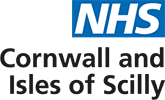Page contents
Non-urgent advice: Call 999 if you think you or someone else is having a stroke
Strokes are a medical emergency and you should call 999 immediately and ask for an ambulance if you think you or someone else is having a stroke.
Symptoms of a stroke
A stroke is a serious life-threatening medical condition that happens when the blood supply to part of the brain is cut off.
The sooner a person receives treatment for a stroke, the less damage is likely to happen.
The main symptoms of stroke can be remembered with the word FAST.
- Face: The face may have dropped on 1 side, the person may not be able to smile, or their mouth or eye may have dropped.
- Arms: The person with suspected stroke may not be able to lift both arms and keep them there because of weakness or numbness in 1 arm.
- Speech: Their speech may be slurred or garbled, or the person may not be able to talk at all despite appearing to be awake; they may also have problems understanding what you’re saying to them.
- Time: Call 999 immediately if you see any of these signs or symptoms.
Causes of a stroke
Like all organs, the brain needs the oxygen and nutrients provided by blood to function properly.
If the supply of blood is restricted or stopped, brain cells begin to die. This can lead to brain injury, disability and possibly death.
There are 2 main causes of strokes:
- Ischaemic: where the blood supply is stopped because of a blood clot, accounting for 85% of all cases.
- Haemorrhagic: where a weakened blood vessel supplying the brain bursts.
There’s also a related condition called a transient ischaemic attack (TIA), where the blood supply to the brain is temporarily interrupted.
This causes what’s known as a mini-stroke. It can last a few minutes or persist up to 24 hours.
TIAs should be treated urgently, as they’re often a warning sign you’re at risk of having a full stroke in the near future.
Seek medical advice as soon as possible, even if your symptoms get better.
Certain conditions increase the risk of having a stroke, including:
Treating a stroke
Treatment depends on the type of stroke you have, including which part of the brain was affected and what caused it.
Strokes are usually treated with medication. This includes medicines to prevent and dissolve blood clots, reduce blood pressure and reduce cholesterol levels.
In some cases, procedures may be required to remove blood clots. Surgery may also be required to treat brain swelling and reduce the risk of further bleeding if this was the cause of your stroke.
Recovering from a stroke
People who survive a stroke are often left with long-term problems caused by injury to their brain.
Some people need a long period of rehabilitation before they can recover their former independence, while many never fully recover and need ongoing support after their stroke.
Reablement support is also available to help people recover, or relearn the skills they need to live at home independently.
Some people will continue to need some form of care or help with their daily activities.
If you’re recovering from a stroke or caring for someone who is, it may be useful to read a guide to care and support.
This is written for people with care and support needs, as well as their carers and relatives.
Preventing a stroke
You can significantly reduce your risk of having a stroke by:
- eating a healthy diet
- following the recommended guidelines on alcohol intake (not drinking more than 14 units a week)
- not smoking
- taking regular exercise
If you have a condition that increases your risk of a stroke, it’s important to manage it effectively. For example, taking medicine you have been prescribed to lower high blood pressure or cholesterol levels.
If you have had a stroke or TIA in the past, these measures are particularly important because your risk of having another stroke is greatly increased.
Stroke in children
Stroke does not just affect adults. Every year around 400 children in the UK have a stroke, according to the Stroke Association.
Read more about childhood stroke on the Stroke Association website.
Cornwall and Isles of Scilly resources
- Cornwall stroke service: Treats about 1,000 new stroke patients and between 600 and 700 patients with transient ischaemic attacks (TIAs) every year.
- My Stroke Guide: A 24/7 self-management tool to support people who have been affected by stroke.
- Stroke befriending service: A befriending service to support adults living in Cornwall who have had a stroke.
Useful resources
- NHS: Find out the signs and symptoms of a stroke.
- Stroke Association: This charity works to prevent stroke and to provide support.
Page last reviewed: 29 June 2022

